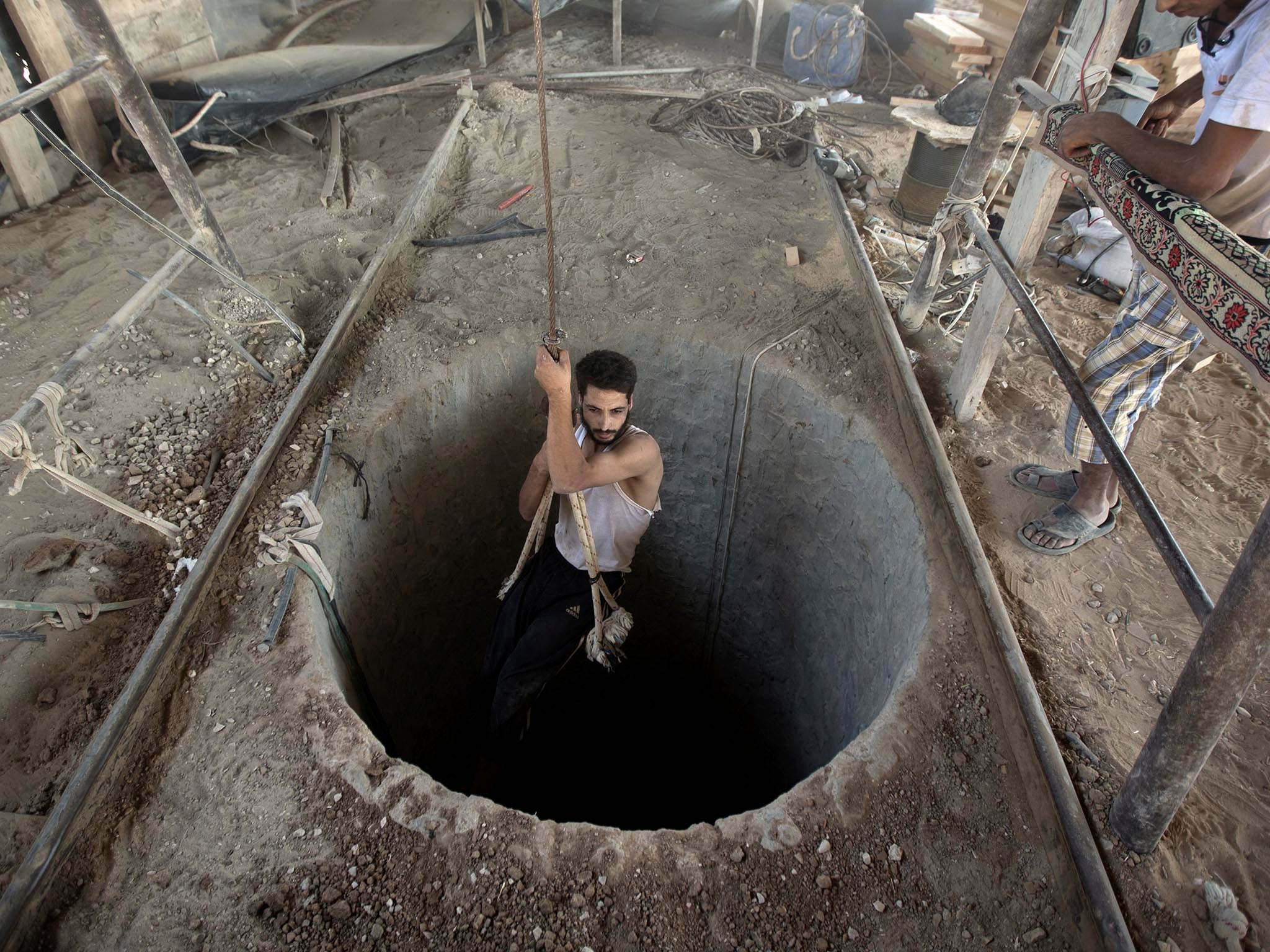Cannabis and prescription painkillers flooding Gaza Strip, Hamas warns
'They think Tramadol will change the reality and will make them feel at peace. They want to lose awareness and any feeling of reality', says a psychiatrist who works with people in the occupied territory

Drugs are flooding into the Gaza Strip at an unprecedented rate, forcing the ruling Hamas group to seek tougher smuggling penalties.
The quantity of marijuana and prescription painkillers such as Tramadol which were seized in Gaza in January was as much for the whole of 2016, officials said.
Eight major dealers were arrested in one of the biggest police stings to date in which they seized more than 100 kg (220 pounds) of marijuana, worth as much as £4m on the streets of Gaza, and 250,000 tablets of tramadol, which sells for between 130 and 170 shekels (£30-£40) for 10 pills.
Palestinian and Egyptian gangs move marijuana and painkillers from Egypt into the narrow strip of land with a population of two million where one in four men are unemployed.
Psychiatrist Fadel Abu Heen, who works with people in the occupied territory, says for many, drugs offer an escape.
She said: "They think Tramadol will change the reality and will make them feel at peace. They want to lose awareness and any feeling of reality."
Until they were destroyed by the Egyptian government in 2014 and 2015 drug runners would use a network of tunnels Palestinians and Egyptians had built under the border to move everything from food and consumer goods to cars, cattle and rockets.
The area has been blockaded by land, sea and air by Israel and Egypt since 2007.
Now drugs are moved inside cooking gas canisters or washing machines. Sometimes, small quantities are thrown or catapulted from Egypt into Gaza.
There are kilometres of tubes used to move small packages, and in some cases drugs are shipped inside goods imported from Israel.
"It is a problem but not a phenomenon," said Ahmed Al-Qidra, head of Gaza's anti-drug squad. "We suffer from it just as most countries all over the world."
But he said the probably was getting worse because sentencing for drug dealing in the territory were getting more lenient.
Officially the law allows for life sentences and even the death penalty for drug dealing but this is rarely applied.
Yehya Al-Farra, an aide to Gaza's attorney-general, said the courts needed to get at least at tough as they were in 2009 when one dealer got 15 years in prison.
"The dealer who sells poison is a killer of the soul, he is the same as the killer who uses a gun or a knife," he said. "Therefore, the law states that a punishment up to the death penalty can be applied."
He and Mr Qidra have called for more recruits to the anti-drug squad and more medical facilities to treat addicts.
Inside a Gaza prison, convicts urged men to reject drugs. A 26-year-old barber said he started taking half a tramadol a day after a friend offered him some. Soon he was addicted.
"I urge young people ... to give up bad friends, otherwise they will be destroyed like me," he said. "I was a respected man who knew a loser friend and I became a loser myself."
Additional reporting by Reuters